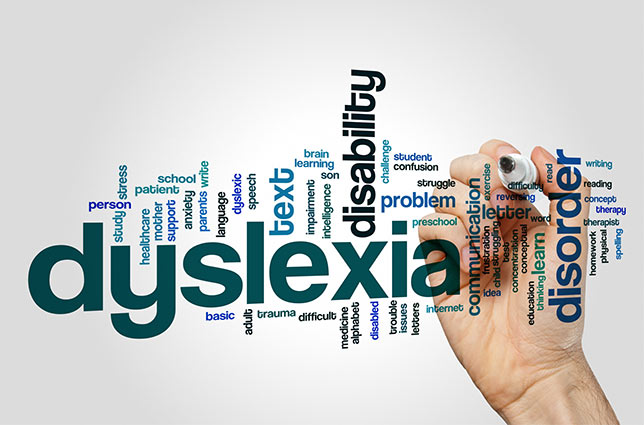Do you struggle with reading or completing math problems? Have you ever wondered whether you might be dyslexic?
Table of Contents
ToggleDyslexia is a learning disorder that affects a person’s ability to read, write and spell, despite having normal intelligence.
Did you know dyslexia affects 5-10% of population, but this number can also be as high as 17%?
Source: DyslexiaHelp.com
70-80% of people who experience some form of reading difficulty have dyslexia.
If you are an adult who struggles with reading, there is a high chance of probability you might be dyslexic, but were never properly diagnosed.
Dyslexia is primarily a language-based learning disability. People who suffer from dyslexia often tend to struggle with their language skills. They find it difficult to pronounce, spell, or write words.
Dyslexia has nothing to do with a person’s intelligence. A person with a normal intelligence level, who suffers from dyslexia, will tend to read at levels lower than that of their counterparts. This occurs mainly due to dyslexia obstructing them from reading easily.
Although with proper diagnosis, therapy, and treatment, people with dyslexia can learn and be successful, the condition remains with them throughout their lives.
If you’re having difficulty reading, you might want to review common symptoms of dyslexia. If there are similarities, your next step should be taking an online test. These free tests you can take online are mainly dyslexia checklist-related questions. After you answer the questions presented to you in these dyslexia checklists you are then given a score that will tell you if the symptoms you have can possibly be dyslexia.
Keep in mind, no dyslexia test is completely accurate. If you suspect you might have dyslexia, that hasn’t been properly diagnosed, you need to see a professional medical professional who can accurately diagnose your condition.
Proper diagnosis is important since it will put you on the right track to getting professional and help you explore possible options and treatments.
VIDEO: Dysleixa Test
Free Online Checklists for Dyslexia and Dyslexia Tests
Understanding the signs and symptoms of dyslexia will help you decide whether you should take a formal dyslexia assessment. Using an online dyslexia testing tool or learning disability checklists can help you evaluate your own reading ability.
Do you think you might have dyslexia?
Take these free online dyslexia tests to help you determine if you might be suffering from dyslexia.
1. Learning Ally
· Learning Ally Dyslexia Test – Free dyslexia test by Learning Ally provides tests for both children and adults.
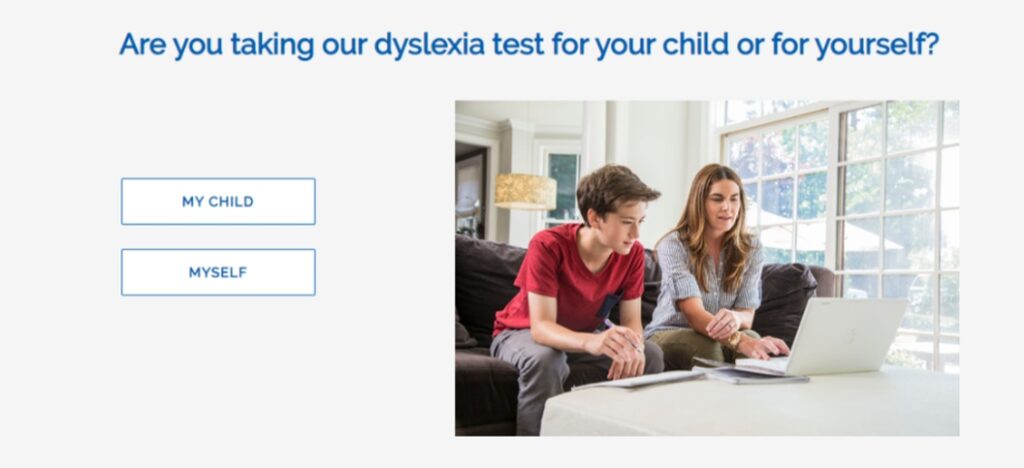
2. Dynaread Dyslexia Test
· Dynaread Dyslexia Test – Free online dyslexia test for children sets the world standard for all dyslexia testing and provides results in just 15 minutes.
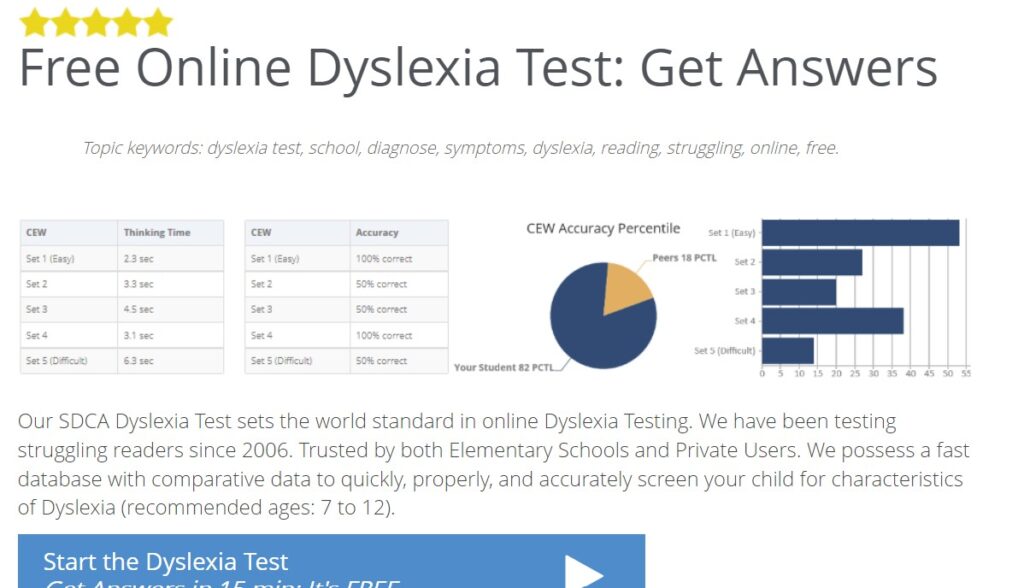
3. Dyslexia International Organization Test
· Dyslexia International Organization Test – This link provides dyslexia a short self-assessment questions checklist for adults.
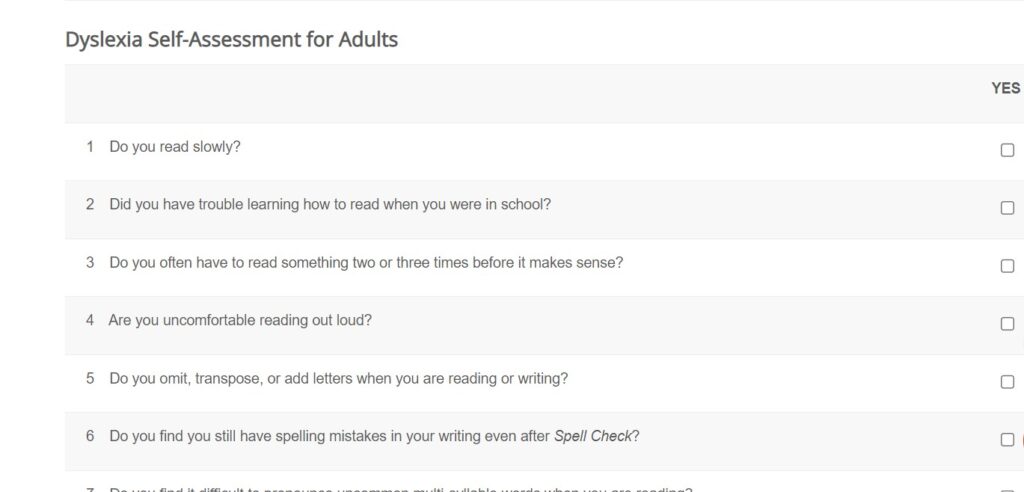
4. Additude Magazine Dyslexia
· Additude Magazine Dyslexia screener – Attitude provides a dyslexia test for adults.
5. Lexercise
Lexercise Free Dyslexia Test for Children – Over 300,000 parents have tested their children for dyslexia
with Lexercise’s free screener.
6. Beating Dyslexia Test
· Beating Dyslexia Online Dyslexia Test – This link takes to you a free short online test that asks you 14 questions to find out of you are dyslexic.
7. Learning Success System
· Learning Success System Dyslexia screener – A dyslexia screener tool by Learning Success.
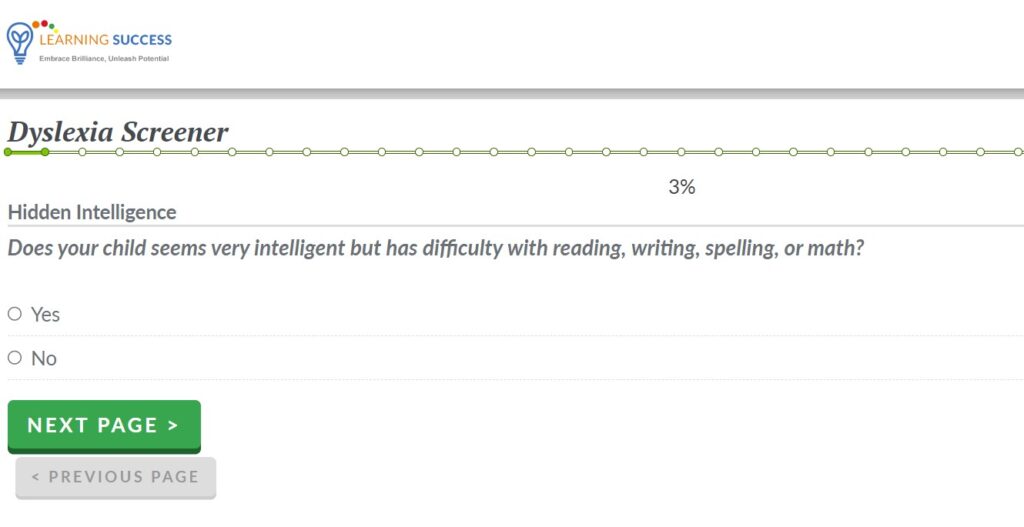
8. Test Dyslexia
· Test Dyslexia Test – This online free dyslexia screening assessment offers a thorough assessment using 41 questions that both children and adults can take.
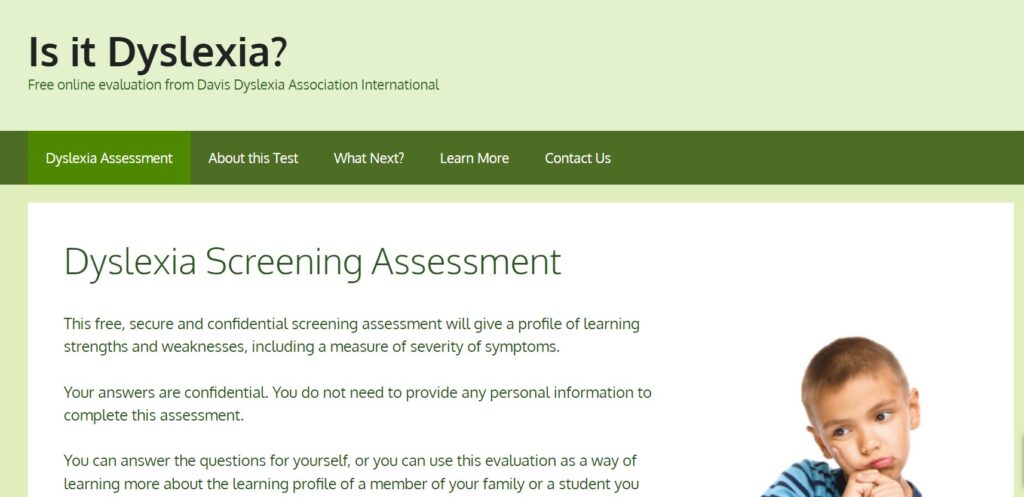
Keep in mind, these tests are not fully accurate.
They are only designed to point you in the right direction. Diagnosing dyslexia can be a complex process that requires the involvement of medical professionals. There are many degrees and levels of this disability and only trained healthcare doctors can properly diagnose dyslexia.
If you suspect you might have dyslexia after taking these tests, please seek a more complete evaluation that can only be completed by a trained healthcare professional or learning specialist.
VIDEO: Signs of Dyslexia in Adults – Common Symptoms & FREE Dyslexia Test
Importance of Comprehensive Evaluation
Free online dyslexia tests can give you a general idea and tell you if you have dyslexia, but they’re not a substitute for a comprehensive dyslexia exam.
A comprehensive evaluation is an essential step in diagnosing dyslexia and providing the appropriate support and accommodations to individuals with this learning disability. It is important to seek the advice of a qualified professional, such as a psychologist or educational specialist, who can accurately diagnose dyslexia and provide a personalized treatment plan.
A comprehensive evaluation is essential for accurately diagnosing dyslexia. This type of evaluation provides a comprehensive picture of the individual’s reading difficulties, academic skills, and other relevant information that can help determine if dyslexia is the cause of their struggles. The evaluation typically involves multiple assessments, including standardized tests, and input from teachers, parents, and the individual being evaluated.
A comprehensive evaluation can help determine the type and severity of dyslexia and identify any other related learning difficulties. This information is crucial for developing an effective treatment plan and providing the appropriate support and accommodations for the individual. Early detection and intervention can help prevent future difficulties in school and work and improve the individual’s overall quality of life.
A comprehensive evaluation also provides a clear picture of the individual’s strengths and weaknesses, which can help to build confidence and self-esteem. Knowing that their difficulties are related to a specific learning disability, rather than a lack of intelligence, can help individuals with dyslexia feel more empowered and motivated to overcome their challenges.
Types of Tests For Dyslexia
It’s important to note that no single test can diagnose dyslexia. A comprehensive evaluation typically involves multiple tests and assessments, as well as input from teachers, parents, and the individual being evaluated. A specialist in learning disabilities, such as a psychologist or educational specialist, can administer and interpret the results of these tests.
Below are several tests that can be used to diagnose dyslexia, including:
1. Phonological Awareness Test:
This test assesses a person’s ability to manipulate sounds in words.
2. Rapid Automatized Naming (RAN) Test:
This test measures a person’s ability to quickly name objects, colors, or letters.
3. Word Decoding Test:
This test evaluates a person’s ability to read unfamiliar words accurately and fluently.
4. Reading Comprehension Test:
This test assesses a person’s understanding of what they have read.
5. Spelling Test:
This test evaluates a person’s ability to spell words correctly.
6. Writing Assessment:
This test evaluates a person’s ability to write coherently and accurately, including their ability to spell, punctuate and use grammar correctly.
Achievement Tests:
This type of test measures a person’s academic skills, including reading, writing, and math, and can provide additional information about specific areas of difficulty.
Who Can Diagnose Dyslexia
A comprehensive dyslexia screening and evaluation can be conducted by a psychologist or educational specialist. It’s important to seek the advice of a qualified professional who has the training and expertise to accurately diagnose dyslexia and provide a personalized treatment plan.
These professionals are trained to diagnose and treat dyslexia and other learning disabilities and have the expertise to administer and interpret a variety of tests and assessments.
A psychologist can conduct a comprehensive evaluation for dyslexia that includes cognitive and educational assessments, as well as behavioral and emotional evaluations. They can also provide support and guidance for individuals and their families, and make recommendations for treatment and accommodations.
An educational specialist, such as a learning specialist or reading specialist, can also conduct a comprehensive evaluation for dyslexia. They typically focus on educational and academic assessments, including reading, writing, and math skills. They can also provide support and guidance for individuals in the school setting, and make recommendations for accommodations and support.
Typical Questions for Adults to Determine If You Have Dyslexia
Let’s take a closer look at some typical questions dyslexia self-assessment tests and checklists will ask.
Did You Have Trouble Learning How to Read?
While there is some variation, most kids learn to read in kindergarten or first grade. Most adults won’t usually remember the process of how they acquired reading skills. Instead, the process happened gradually over time, similar to learning how to walk.
Adults with dyslexia, however, will often recall struggling to read as kids. Perhaps you were reading behind grade level for most of the school. Or maybe you dreaded being called on to read out loud. If you were it’s likely you had some kind of learning disability and possibly dyslexia.
Do You Avoid Reading Now?
Because of their difficulties learning how to read, adults with dyslexia will often make choices that help them avoid reading. In many cases, these decisions may not have even been conscious ones.
For example, adults with dyslexia may choose a career that doesn’t require reading. Many are attracted to career paths in engineering, medicine, or arts where they can work with their hands rather than sit at a desk.
Do You Have to Read Something Multiple Times to Understand it?
Individuals with dyslexia will often struggle to read quickly. Some people even describe a sensation of words moving around the page, or of the text looking blurry. This can cause feelings of frustration, or even physical illness.
For this reason, you may find yourself reading slowly, or needing to read the same passage multiple times. You may also find that it is difficult for you to focus on reading for a prolonged period of time.
Because of these difficulties, you may also struggle to read different fonts or cursive writing.
Do You Omit or Transpose Letters When Writing?
Often, people will associate dyslexia with reading difficulties. But some of the most common signs appear in writing.
Have a friend take a look at some of your written notes. Do they see words with missing letters? Or perhaps letters like “b” or “d” are written backward?
They also might notice several misspellings. Not everyone who struggles to spell is dyslexic, but most people with dyslexia will experience difficulty spelling. You may even struggle to spell common words, or words that seem “easy” to other people.
These kinds of mistakes are common with dyslexia. It’s important to have someone else check your writing, as you are unlikely to catch these yourself.
Should You Take a Dyslexia Test To Find Out if You’re Dyslexic?
Online dyslexia tests can provide some general information about reading difficulties, but they are not a substitute for a comprehensive evaluation by a qualified professional. While online tests may ask questions and present tasks that are similar to those used in a clinical evaluation, they cannot provide a diagnosis of dyslexia.
However, Online tests are limited in their accuracy because they cannot take into account the individual’s complete history, learning style, and other factors that are important in making a diagnosis. They may also not be able to accurately assess the severity of the symptoms or the specific type of dyslexia a person may have.
Additionally, online tests can be prone to errors and may not always provide reliable results. They may not be up-to-date with the latest research and diagnostic criteria, and they may not be designed or administered by trained professionals.
Conclusion
It’s always good to remember that online dyslexia tests should not be relied upon as the sole source of information about a reading difficulty. It is always best to consult a qualified professional for a comprehensive evaluation.
Without proper diagnosis, there can’t be a proper treatment.
Need more help for yourself, or someone else who is living with dyslexia? Check out our resources section to get the tools you need.


